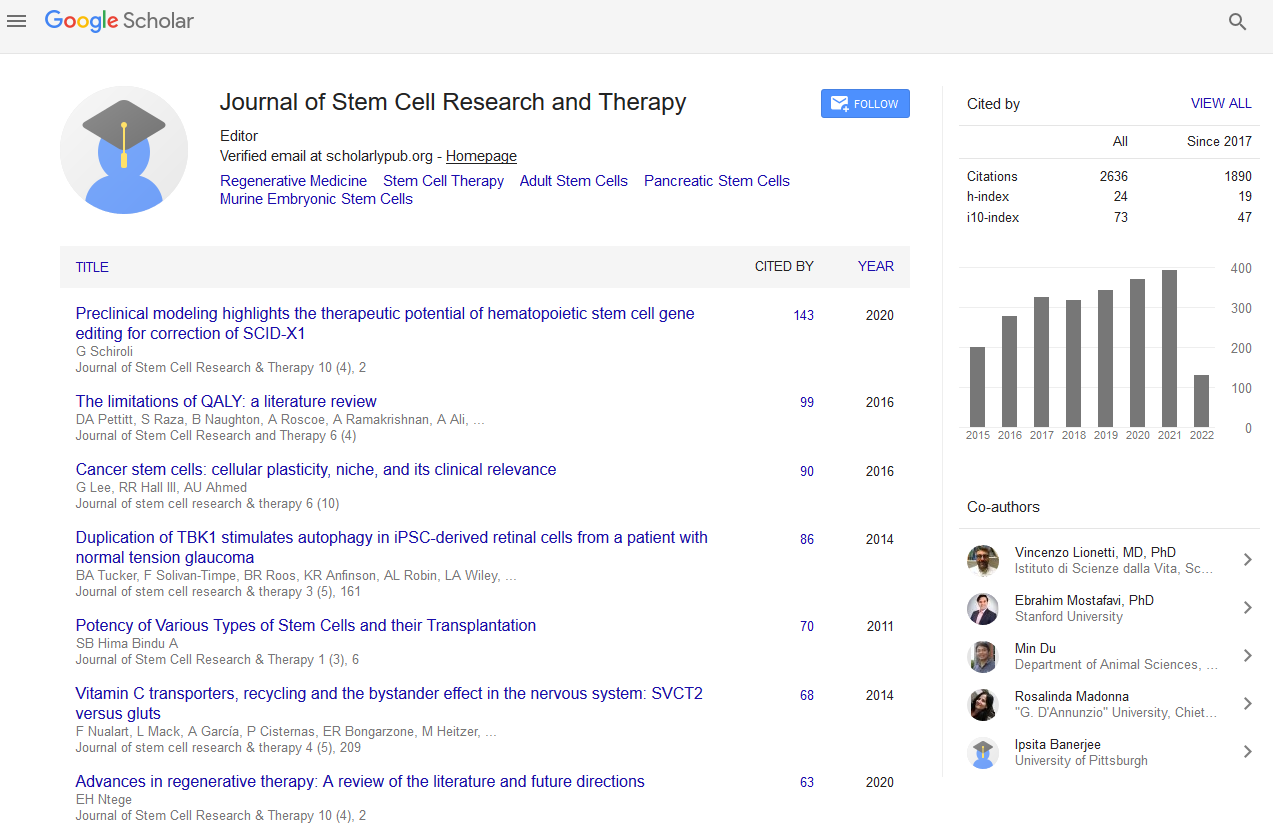Indexed In
- Open J Gate
- Genamics JournalSeek
- Academic Keys
- JournalTOCs
- China National Knowledge Infrastructure (CNKI)
- Ulrich's Periodicals Directory
- RefSeek
- Hamdard University
- EBSCO A-Z
- Directory of Abstract Indexing for Journals
- OCLC- WorldCat
- Publons
- Geneva Foundation for Medical Education and Research
- Euro Pub
- Google Scholar
Useful Links
Share This Page
Journal Flyer

Open Access Journals
- Agri and Aquaculture
- Biochemistry
- Bioinformatics & Systems Biology
- Business & Management
- Chemistry
- Clinical Sciences
- Engineering
- Food & Nutrition
- General Science
- Genetics & Molecular Biology
- Immunology & Microbiology
- Medical Sciences
- Neuroscience & Psychology
- Nursing & Health Care
- Pharmaceutical Sciences
Abstract
Induction of immune tolerance towards allogeneic cells using fetal directed placental injection in a murine model
Yukiko Shimazu, Masayuki Endo, Katsuto Tamai, Kei Takahashi, Takekazu Miyoshi, Hiroshi Hosoda, Alan W. Flake, Tadashi Kimura, Jun Yoshimatsu
Objective: In utero exposure to foreign antigens prior to the development of the immune system induces immune tolerance. We aimed to induce immune tolerance towards allogeneic cells by early gestational transplacental injection under ultrasound guidance in a murine model. Methods: Bone marrow cells from C57BL/6-Green Fluorescence Protein transgenic mice were transplanted into the placenta of Balb/c fetal mice at 11-day of gestation under ultrasound guidance. Each fetus was injected with 2 × 105 cells/2.5 μl. After birth, we evaluated the immune response against allogeneic donor cells. Results: The birth survival rate was 21.2% for allogeneic mice. Survival of the donor skin graft was 75% and successful in mice injected with fetal transplacental cells, whereas the transplanted allogeneic skin was all rejected within 4 weeks in control naïve mice (p=0.007). Cytotoxic immune reactivity against the allogeneic cells was suppressed according to the ELISPOT assay (p=0.002). Conclusion: We showed that early transplacental allogeneic cell injection can induce donor-specific tolerance sufficient to allow tissue graft.
Published Date: 2020-01-10; Received Date: 2019-11-28


